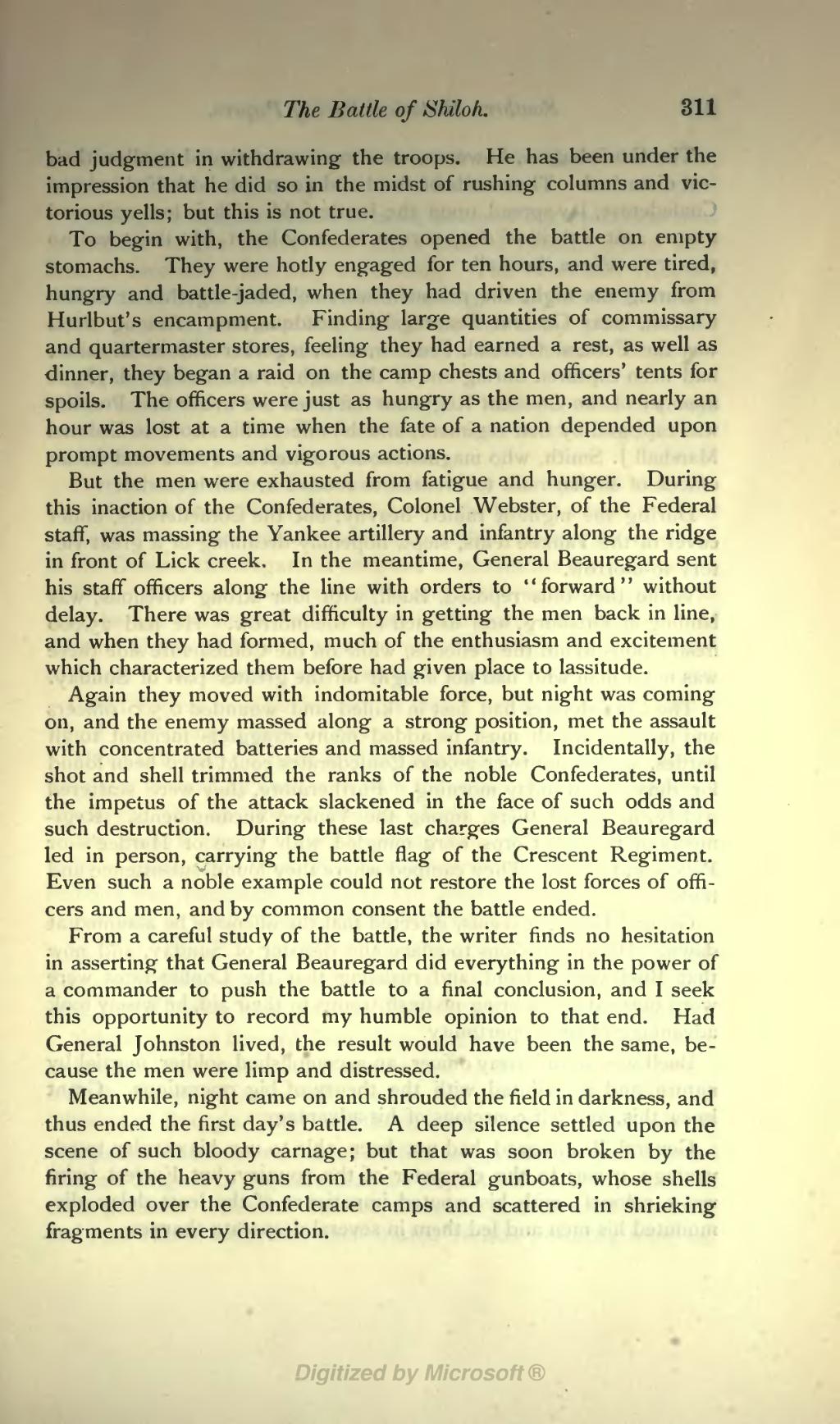The Battle of tihilofi. 311
bad judgment in withdrawing the troops. He has been under the impression that he did so in the midst of rushing columns and vic- torious yells; but this is not true.
To begin with, the Confederates opened the battle on empty stomachs. They were hotly engaged for ten hours, and were tired, hungry and battle-jaded, when they had driven the enemy from Hurlbut's encampment. Finding large quantities of commissary and quartermaster stores, feeling they had earned a rest, as well as dinner, they began a raid on the camp chests and officers' tents for spoils. The officers were just as hungry as the men, and nearly an hour was lost at a time when the fate of a nation depended upon prompt movements and vigorous actions.
But the men were exhausted from fatigue and hunger. During this inaction of the Confederates, Colonel Webster, of the Federal staff, was massing the Yankee artillery and infantry along the ridge in front of Lick creek. In the meantime, General Beauregard sent his staff officers along the line with orders to "forward" without delay. There was great difficulty in getting the men back in line, and when they had formed, much of the enthusiasm and excitement which characterized them before had given place to lassitude.
Again they moved with indomitable force, but night was coming on, and the enemy massed along a strong position, met the assault with concentrated batteries and massed infantry. Incidentally, the shot and shell trimmed the ranks of the noble Confederates, until the impetus of the attack slackened in the face of such odds and such destruction. During these last charges General Beauregard led in person, carrying the battle flag of the Crescent Regiment. Even such a noble example could not restore the lost forces of offi- cers and men, and by common consent the battle ended.
From a careful study of the battle, the writer finds no hesitation in asserting that General Beauregard did everything in the power of a commander to push the battle to a final conclusion, and I seek this opportunity to record my humble opinion to that end. Had General Johnston lived, the result would have been the same, be- cause the men were limp and distressed.
Meanwhile, night came on and shrouded the field in darkness, and thus ended the first day's battle. A deep silence settled upon the scene of such bloody carnage; but that was soon broken by the firing of the heavy guns from the Federal gunboats, whose shells exploded over the Confederate camps and scattered in shrieking fragments in every direction.
